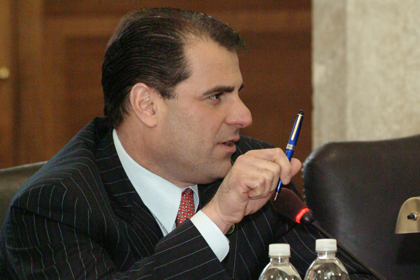
TRENTON – In order to assist law enforcement in combating heroin trafficking in New Jersey, Senator Paul A. Sarlo introduced legislation today to strengthen penalties for manufacturing, distributing and dispensing the potent and deadly drug. The bill would decrease the amount of heroin that constitutes certain offenses involving trafficking. In doing so, it would ensure that traffickers dealing small amounts of the drug face steeper criminal penalties.
“Heroin abuse is an epidemic in this state that is causing hundreds of overdose deaths each year. It no longer is a problem that exists only in certain areas, but has reached all corners of New Jersey. The fact that it is cheap and being distributed in a purer form that can be snorted is also cause for concern since it is luring younger users throughout the state,” said Senator Sarlo (D-Bergen). “We have to address this problem. However, the criminal penalties for trafficking in many cases amount to no more than a slap on the wrist. This bill gives law enforcement additional tools to hold dealers accountable and to assess a penalty that fits the seriousness of the crime.”
Heroin is inexpensive and readily available, with demand having grown sharply in recent years. The demand has been fueled in part by individuals with pill addictions who make the transition into heroin abuse. The drug, chemically similar to oxycodone and other opiate-based medications, offers an even more powerful high than painkillers at a much lower price, with a dose costing about as much as a pack of cigarettes. Additionally, while heroin once scared off people who were fearful of injecting themselves with needles, it is now available in a form pure enough to be snorted. This convenience is enticing users as young as 14. Current law allows drug dealers to meet the growth in demand while avoiding the most severe criminal penalties.
“Penalties for trafficking are determined by the weight of the substance, meaning that crimes involving heroin are being treated the same as those related to cocaine despite the seriousness of the drug. This ignores the differences in how the drugs are dealt and used, and in many cases is resulting in heroin dealers walking with just minor criminal penalties,” said Sarlo. “By reducing the thresholds for certain offenses, we will ensure that traffickers dealing small amounts of this potent drug face steeper sentences for manufacturing and distributing it on our streets.”
A report issued in July of 2013 by the State Commission of Investigation evaluated this issue and offered recommendations for a proportioned decrease in the thresholds for heroin offenses, finding: the threshold for a first-degree offense should be lowered from five ounces to 2.5 ounces; for a second-degree offense should be lowered from one-half ounce to 0.17 ounce; any amount less than 0.17 should be a third-degree offense. The bill incorporates these recommendations, thereby decreasing the thresholds for offenses involving heroin with regard to manufacturing, distributing or dispensing heroin, or having heroin under one’s control with the intent to manufacture, distribute or dispense.
A crime of the first degree carries a penalty of up to 20 years in prison or a fine of up to $200,000, or both; a crime of the second degree carries a penalty of up to 10 years in prison, a fine of $150,000, or both; and a crime of the third degree carries a penalty of up to 5 years in prison, a fine of up to $15,000 or both.

